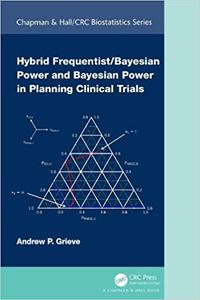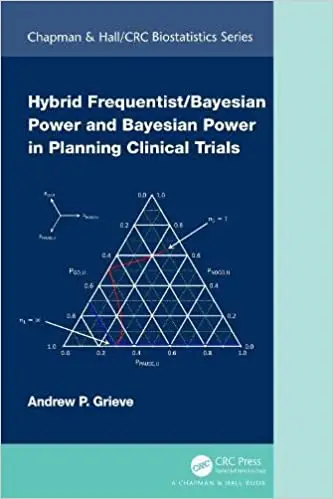Hybrid Frequentist/Bayesian Power and Bayesian Power in Planning Clinical Trials
by Andrew P. Grieve
English | 2022 | ISBN: 1032111291 | 212 pages | True PDF | 6.19 MB
by Andrew P. Grieve
English | 2022 | ISBN: 1032111291 | 212 pages | True PDF | 6.19 MB
Hybrid Frequentist/Bayesian Power and Bayesian Power in Planning Clinical Trials provides a practical introduction to unconditional approaches to planning randomised clinical trials, particularly aimed at drug development in the pharmaceutical industry. This book is aimed at providing guidance to practitioners in using average power, assurance and related concepts. This book brings together recent research and sets them in a consistent framework and provides a fresh insight into how such methods can be used.
Features
A focus on normal theory linking average power, expected power, predictive power, assurance, conditional Bayesian power and Bayesian power.
Extensions of the concepts to binomial, and time-to-event outcomes and non-inferiority trials
An investigation into the upper bound on average power, assurance and Bayesian power based on the prior probability of a positive treatment effect
Application of assurance to a series of trials in a development program and an introduction of the assurance of an individual trial conditional on the positive outcome of an earlier trial in the program, or to the successful outcome of an interim analysis
Prior distribution of power and sample size
Extension of the basic approach to proof-of-concept trials with dual success criteria
Investigation of the connection between conditional and predictive power at an interim analysis and power and assurance
Introduction of the idea of surety in sample sizing of clinical trials based on the width of the confidence intervals for the treatment effect, and an unconditional version.



